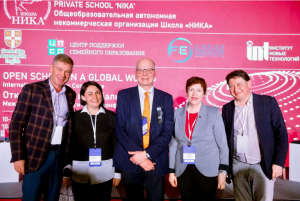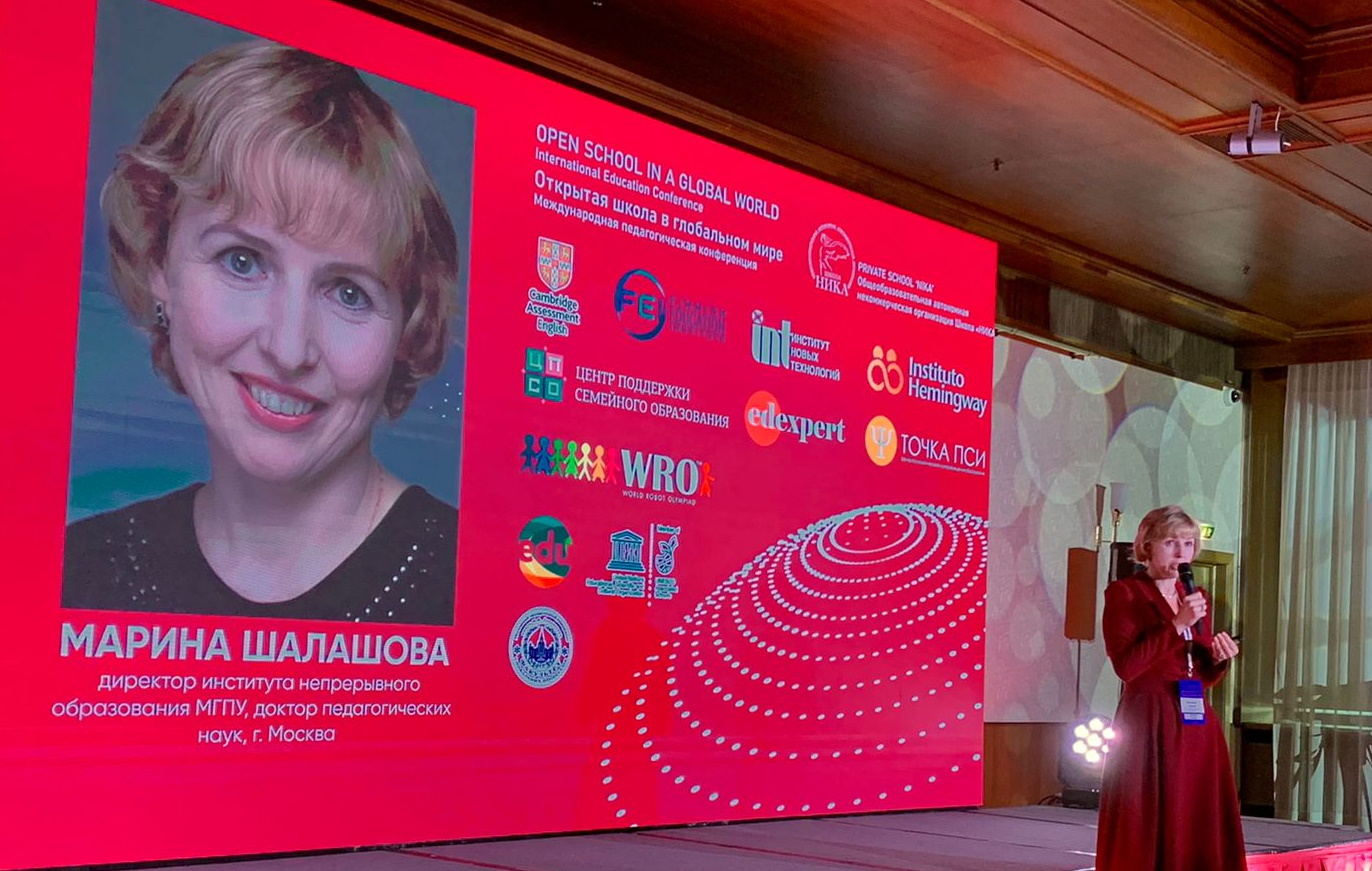On February 10—12, Professor Marina Shalashova, Director of the MCU’s Institute of Lifelong Learning, and Professor Tatiana Kovaleva, Head of the Laboratory of Individualization and Lifelong Learning, participated in the 1st International Teaching Conference “Open School in a Global World” at the International School “Nika“.
The conference focused on the most urgent issues of the school transformation in modern conditions:
- What is the “school of creation”, and how to develop it?
- “Lessons of open thinking”: how and why?
- The skills of the future — soft skills and meta-skills: how does a tutor help a child?
- A new perspective on project-based activities at school as a way to complete one’s knowledge?
- Cross-disciplinary interaction between teachers and children at subject workshops;
- The teacher as a navigator and the school as a space for self-determination.
At her presentation, Professor Marina Shalashova pointed out that digitalization is the major driver of changes and influences all the trends in education:
Despite the leaping transition to digital technology caused by the pandemic, the technological transformation of education continues. The platform HolonIQ predicts that the volume of the education industry will increase from 5.2 trillion U.S. dollars in 2020 to 7.3 trillion in 2025 due to the introduction of new technologies. However, we have to keep in mind that digital technology complements teachers’ activities, and they should be considered together. That’s why one of the most urgent objectives of modern education is to develop digital didactics.
The abundance of various learning resources and the opportunity to study at any time and place lead to changes in teachers’ competencies. A contemporary educator should be able to act as a tutor, mentor, coordinator of project-based activities, gamemaster, analyst, and educational designer. Consequently, the question “How to train an educator?” is especially urgent.
Professor Marina Shalashova presented some cases at MCU, which showed new approaches to designing a learning environment and opportunities for personalized professional teacher training, aimed to extend a range of competencies.
Professor Tatiana Kovaleva elaborated on the individualization of education. When learners can follow a personalized learning trajectory, they have to possess three skills: self-determination, self-sustainability, and self-organization. And a tutor should assist in developing the skills, which makes tutorship one of the crucial educational resources.


